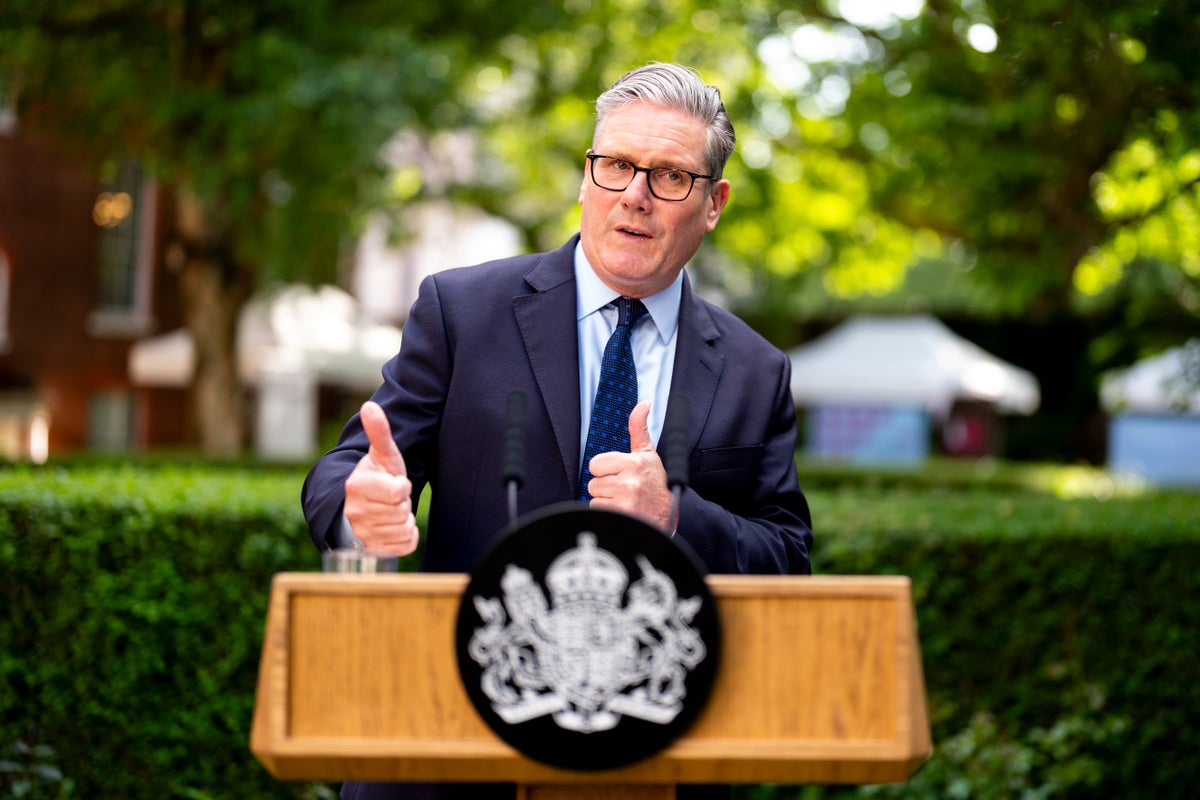It never rains but it pours for Keir Starmer. He is fighting to stop the Iran crisis wrecking his one success as prime minister – a solid performance on foreign affairs in which he somehow maintains a productive relationship with Donald Trump.
Insiders tell me Starmer’s efforts are aimed at persuading Iran to enter meaningful talks on its nuclear programme and then convincing a highly sceptical US president that Iran is serious about negotiations.
But if Trump goes ahead with his threat to bomb Iran, Starmer’s special relationship with him could conceivably be stretched to breaking point.
The prime minister can’t escape his woes on domestic matters. His intense diplomacy was interrupted on Thursday by the unwelcome news that Vicky Foxcroft had resigned as a whip in protest at the government’s cuts to disability benefits. She might not be the last to quit a government post before the crunch vote on £5bn of welfare cuts on 1 July, when Starmer faces the biggest Labour revolt of his premiership.
Some parliamentary aides to ministers are on resignation watch. The government’s robotic response to Foxcroft’s departure, which failed to acknowledge her respected work as shadow disabilities minister before last year’s election, angered some Labour MPs.
Many will rebel with a heavy heart. They accept the need to reduce the ballooning welfare budget, but think the panicky cuts ahead of Rachel Reeves’s spring statement symbolise how the government repeatedly reacts to events – in this case, living from hand to mouth to stick within the chancellor’s fiscal rules – instead of having a long-term reform strategy.
For some Whitehall-watchers, Starmer will not improve matters unless he reforms the centre of government. Critics think the relationship between No 10 and the Cabinet Office isn’t working, leaving the other side of the triangle, the Treasury, to call the shots. The result: the winter fuel allowance catastrophe and now the welfare rebellion.
Even some in Downing Street admit privately a shake-up is needed. Sam Freedman, a former special adviser and author of an excellent book, Failed State, suggests loosening the Treasury’s grip by forming an Office of Budget Management, run jointly by the Treasury and Downing Street, which would oversee future spending reviews to ensure they reflect the PM’s priorities.
Freedman believes Starmer should consider a change Tony Blair introduced in his second term, which improved public service delivery. To prevent the whole operation being sucked into reacting to events, three units focused on different timescales: a policy unit on day-to-day oversight of Whitehall departments; a delivery unit on a small number of the PM’s priorities (in Starmer’s case, that would be his five missions); and a strategy unit on difficult long-term challenges. This ensured a more strategic state.
One problem today is that the “missions delivery unit” is based in the Cabinet Office rather than No 10. The Institute for Government (IFG) think tank has made a sensible proposal to abolish the Cabinet Office and set up an expanded “Office of the Prime Minister”, which would then take charge of the missions.
Do such structures really matter? Yes. They are even more important when a PM makes a virtue out of his pragmatism and lack of ideology, as Starmer does. Like many predecessors, Starmer complains the Whitehall machine is slow to crank into life when he demands action. Often fair – but civil servants also have a point when they grumble that this government does not give them clear enough marching orders.
For example, the government’s own commitment to Starmer’s missions – later relaunched as six milestones in his “plan for change” – is now being questioned in Whitehall. Ministers promised the missions would be the “guiding star” of the government-wide spending review unveiled by Reeves last week, and that cabinet ministers would collaborate on cross-departmental working and budgets. Only one problem: there was little money to go round. So the review again became a trial of strength between the Treasury and individual ministers trying to protect their departments.
Starmer’s “mission-driven government” was caught in the crossfire and some Whitehall officials think the idea suffered serious damage. The IFG calculates that two of the missions – on economic growth and clean energy – did well out of the spending review, but the other three – on health, safer streets and opportunity – look difficult to achieve.
Another reason why the missions matter is that this government doesn’t have the option of pumping in extra cash to secure the improvements to public services voters want, as Blair and Gordon Brown enjoyed. Although Reeves won headlines for her big boost to building projects, her squeeze on day-to-day budgets is viewed in Whitehall as a “standstill settlement”. So reform and efficiency savings will be needed to secure tangible improvements – not least in the NHS.
The missions can play a part in prioritising these goals. With many public services still struggling in the voters’ eyes, standing still will not win Labour a second term.

